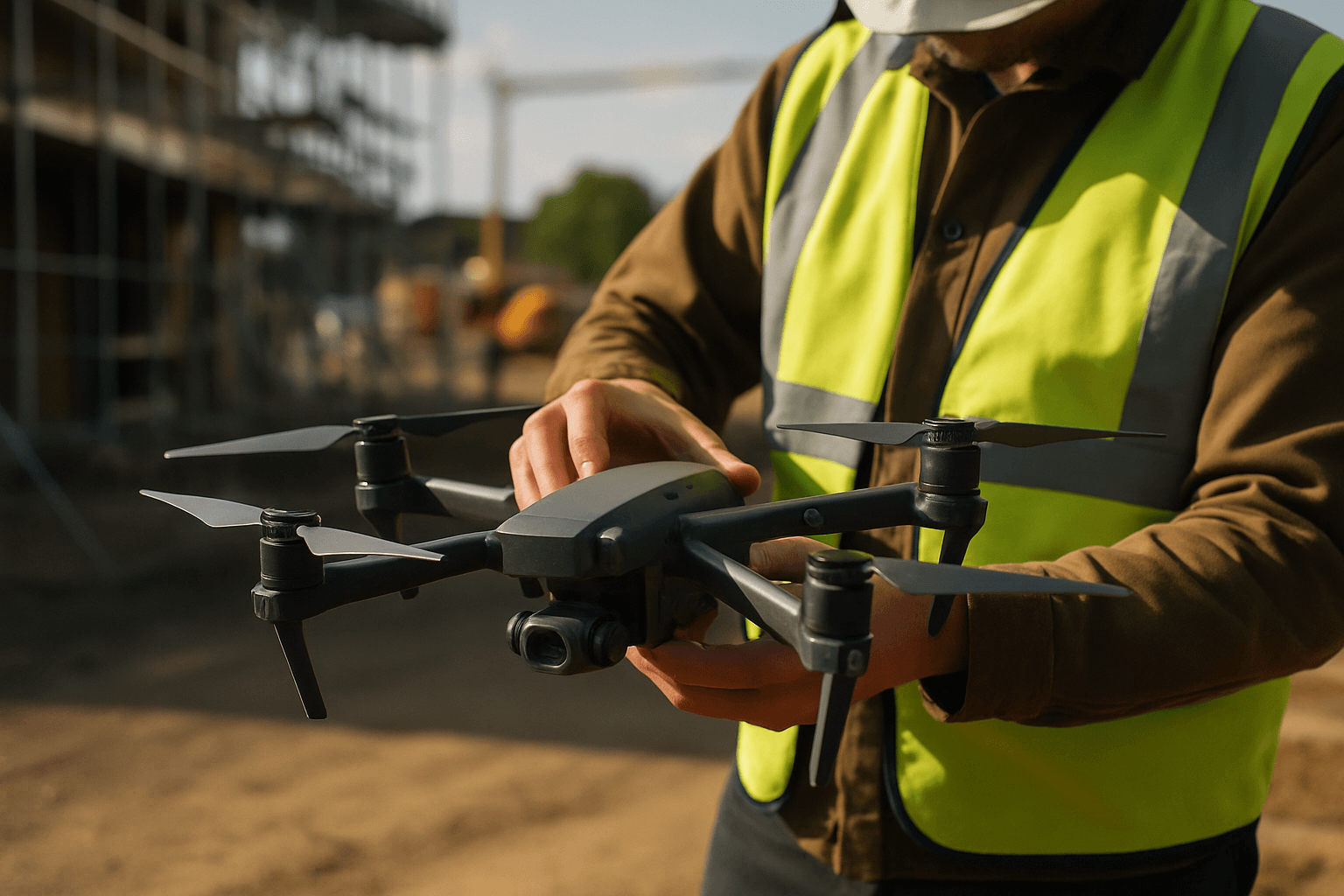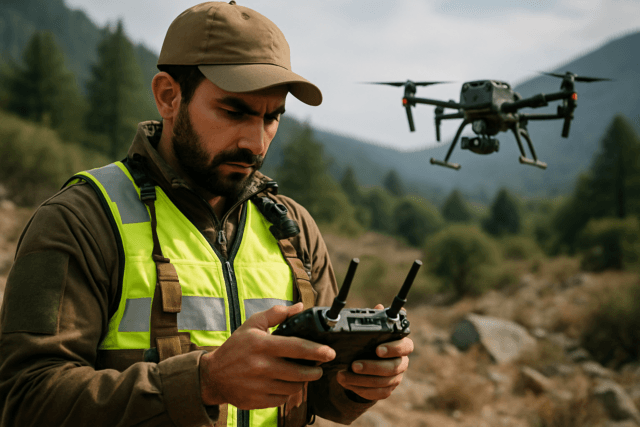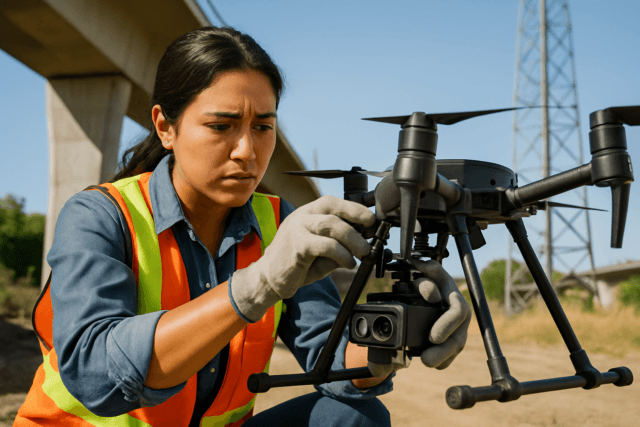Drones have evolved from novelties to essential tools across various industries, offering rapid and cost-effective access to remote locations, difficult terrains, and unique aerial perspectives. This versatility has fueled the growth of the drone sector in the UK, predicted to reach £42 billion by 2030, creating significant business opportunities. However, increasing regulation necessitates careful planning, legal compliance, and a strong marketing strategy to succeed in this dynamic market. This guide provides a comprehensive roadmap for launching a successful drone business in the UK.
1. Understand the Growing Market
The UK drone industry is thriving, supported by government initiatives and technological advancements. The UK Future of Flight Action Plan aims to position the UK as a global leader in the drone industry by 2030, potentially generating annual economic benefits of up to £2 billion by 2040. Key sectors driving demand for drone services include:
- Construction and Infrastructure: Progress monitoring, site surveys, and building inspections.
- Agriculture: Crop health monitoring, field analysis, and precision spraying.
- Real Estate: Aerial photography and videography for property marketing.
- Film and Media: Aerial cinematography for movies, TV, and commercials.
- Emergency Services: Search and rescue operations, disaster response, and surveillance.
2. Define Your Niche and Services
While versatility can be beneficial, specializing in a specific niche can lead to stronger market positioning and higher revenue potential. Consider these factors when selecting your niche:
- Market Demand and Competition: Research the demand for specific drone services in your local area and assess the level of competition.
- Technical Expertise and Certifications: Determine the technical skills and certifications required for your chosen niche.
- Initial Equipment Investment: Evaluate the cost of equipment needed for your specialized services.
- Potential Return on Investment: Analyze the potential profitability and growth opportunities within the sector.
- Personal Interests and Skills: Align your niche with your existing skills and interests for a more fulfilling and successful business venture.
Potential Drone Business Services:
- Aerial Photography and Videography
- Drone Mapping and Surveying
- Building and Roof Inspections
- Agricultural Surveys
- Thermal Imaging
- Construction Site Monitoring
- Search and Rescue Operations
- Drone Shows
- Drone Education and Training
- Drone Repair and Maintenance
3. Legal Requirements and Regulations
Navigating the regulatory landscape is crucial for any drone business in the UK. The Civil Aviation Authority (CAA) regulates drone operations to ensure safety and compliance. Key regulations and requirements include:
- Registration: All commercial drone operators must register with the CAA and obtain an Operator ID.
- Flyer ID: Each pilot controlling the drone must have a Flyer ID, obtained by passing an online theory test. This training is extended to users of drones over 100g as of May 2025.
- Operational Authorisation: For operations outside the Open category, you may need to apply for an Operational Authorisation (OA) from the CAA. This requires submitting an operations manual and demonstrating safe operating procedures.
- Air Navigation Order (ANO) 2016: Adhere to the ANO 2016, which outlines operational limits, including maximum altitude and distance from the operator, and no-fly zones.
- Visual Line of Sight (VLOS): Drones must be flown within visual line of sight, except for specific approved operations.
- Restricted Airspace: Obtain permission from the CAA to fly in or near restricted airspace, such as airports or military installations.
- Privacy and Data Protection: Comply with the Data Protection Act 2018 and GDPR when capturing images or videos, especially those that could identify individuals.
Drone Categories (as of 2024):
- Open Category: Low-risk operations that do not require prior authorization.
- Specific Category: Operations with higher risks that require an operational authorization from the CAA.
- Certified Category: High-risk operations that require drone certification and licensed pilots.
4. Obtain Necessary Qualifications and Training
While some drones under 250g do not require a professional license, operating heavier drones requires specific qualifications and training. Consider the following:
- A2 Certificate of Competency (A2 CofC): Allows you to fly drones in the A2 subcategory, closer to people than with the Flyer ID alone.
- General Visual Line of Sight Certificate (GVC): The highest level of drone license, demonstrating your ability to operate drones safely and legally for commercial purposes.
- Operating Safety Case (OSC): An enhanced permission from the CAA allowing operations closer to people or in congested areas.
5. Choose the Right Equipment
Selecting the appropriate drone and equipment is crucial for delivering high-quality services. Consider these factors:
- Drone Capabilities: Choose a drone that meets the specific requirements of your chosen niche, such as camera quality, flight time, and payload capacity.
- Camera and Lenses: Invest in high-quality cameras and lenses to capture detailed images and videos.
- Software and Technology: Utilize drone management software for flight planning, data analysis, and reporting.
- Accessories: Purchase necessary accessories such as extra batteries, chargers, and landing pads.
Popular Drone Models for Commercial Use:
- DJI Mini Series (for lightweight operations)
- DJI Mavic Series (for versatile aerial photography and videography)
- DJI Inspire Series (for professional-grade cinematography)
- DJI Matrice Series (for industrial inspections and surveying)
6. Secure Drone Business Insurance
Commercial drone operators are required to have adequate liability insurance to cover potential damages or injuries resulting from their operations. Key considerations include:
- Public Liability Insurance: Covers damages to third parties or their property caused by your drone operations.
- Equipment Insurance: Protects your drone and equipment against loss, theft, or damage.
- EC Regulation 785/2004 Compliance: Ensure your insurance policy complies with EC Regulation 785/2004, which sets minimum insurance requirements for aviation operations.
- Coverage Limits: Determine the appropriate coverage limits based on the potential risks associated with your operations. Many policies offer coverage up to £5 million, with options for higher limits.
- Fly-Away Coverage: Consider policies that cover “fly-away” incidents where the drone is lost or unrecoverable.
7. Develop a Business Plan
A well-structured business plan is essential for securing funding, attracting investors, and guiding your business strategy. Key components of a business plan include:
- Executive Summary: A brief overview of your business concept, goals, and objectives.
- Company Description: Details about your business structure, mission, and values.
- Market Analysis: Research and analysis of your target market, competition, and industry trends.
- Services Offered: A detailed description of the drone services you will provide.
- Marketing and Sales Strategy: Plans for attracting and retaining customers.
- Financial Projections: Forecasts of revenue, expenses, and profitability.
- Management Team: Information about the key personnel and their expertise.
- Funding Request (if applicable): The amount of funding you require and how you plan to use it.
8. Market and Brand Your Business
Effective marketing and branding are crucial for attracting clients and establishing a strong reputation. Consider these strategies:
- Create a Professional Website: Showcase your services, portfolio, and client testimonials.
- Social Media Marketing: Utilize social media platforms to promote your business and engage with potential customers.
- Networking: Attend industry events, join drone pilot networks, and connect with potential clients.
- Search Engine Optimization (SEO): Optimize your website and online content to rank higher in search engine results.
- Paid Advertising: Utilize online advertising platforms such as Google Ads to reach a wider audience.
- Partnerships: Collaborate with complementary businesses to offer bundled services and expand your reach.
9. Set Competitive Rates and Manage Finances
Determine your pricing strategy based on market research, cost analysis, and value proposition. Consider these factors:
- Hourly or Project-Based Rates: Decide whether to charge by the hour or offer fixed prices for specific projects.
- Market Research: Research what other drone businesses are charging in your area and niche.
- Cost Analysis: Calculate your operating costs, including equipment, insurance, training, and marketing.
- Value Proposition: Highlight the unique benefits and value you offer to justify your pricing.
Typical Startup Costs:
- Drone and Equipment: £1,500 – £10,000+
- Training and Certification: £500 – £2,000+
- Insurance: £500 – £1,500+ per year
- Marketing and Website: £500 – £2,000+
Potential Annual Revenue: £30,000 – £60,000+ (depending on niche and market demand)
10. Utilize Drone Management Software
Drone management software can streamline your operations, improve efficiency, and ensure compliance. Consider these features:
- Flight Planning: Plan and manage flight paths, airspace restrictions, and weather conditions.
- Risk Assessment: Identify and mitigate potential risks associated with drone operations.
- Maintenance Tracking: Track drone maintenance schedules and repairs.
- Pilot Management: Manage pilot certifications, training, and flight logs.
- Reporting: Generate reports on flight data, maintenance records, and operational performance.
- Compliance: Ensure compliance with regulations and maintain necessary documentation.
Popular Drone Management Software:
- Dronedesk
- Dronecloud
- Flyte
11. Prioritize Safety and Customer Service
Safety should be your top priority. Always adhere to regulations, conduct thorough risk assessments, and maintain your equipment. Exceptional customer service is also essential for building a strong reputation and securing repeat business. Focus on:
- Clear Communication: Maintain open and transparent communication with clients throughout the project.
- Professionalism: Deliver projects on time, meet deadlines, and exceed expectations.
- Problem Solving: Address any issues or concerns promptly and effectively.
- Feedback: Solicit feedback from clients and use it to improve your services.
12. Continuously Adapt and Improve
The drone industry is constantly evolving, with new technologies and regulations emerging regularly. Stay updated on the latest trends, invest in continuous learning, and adapt your business strategies to remain competitive.
By following these steps, aspiring entrepreneurs can navigate the complexities of the drone industry and build a successful and sustainable business in the UK.





